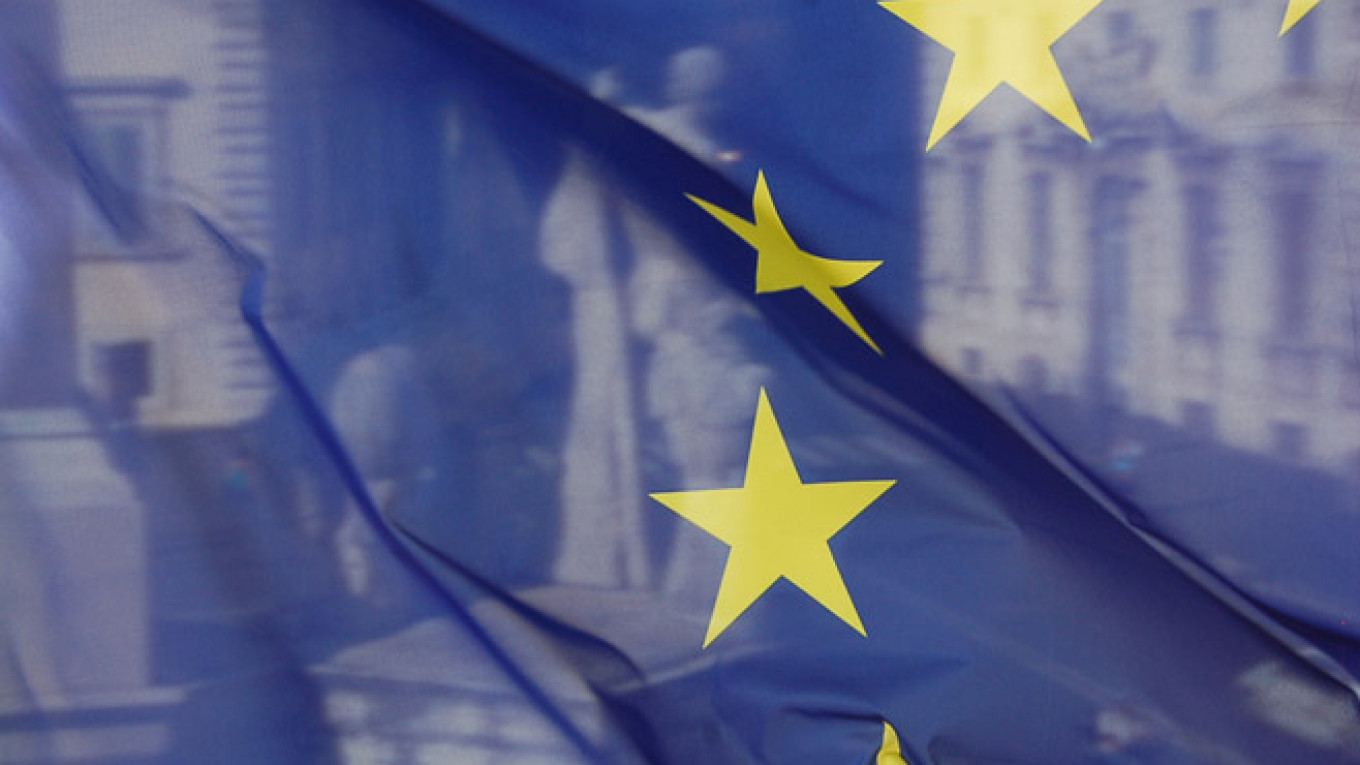European Union leaders met on Wednesday to discuss whether to toughen sanctions against Russia because of what they consider its destabilization of neighboring Ukraine.
Many of the 28 EU leaders who came to Brussels for an evening summit agree that Russia is still failing to take sufficient measures to help ease the crisis in eastern Ukraine, where separatists in two regions want to break away.
EU diplomats were looking at new sanctions that would go beyond the current travel bans and assets freezes against individuals but still fall short of full economic and trade sanctions.
An early draft of proposed new EU sanctions included an end to funding by the European Investment Bank and European Bank for Reconstruction and Development of new public sector projects in Russia, and suspension of many EU bilateral and regional cooperation programs with Russia.
But hours before the start of the summit Wednesday evening, the process was still in flux, with EU officials saying the language was still being worked on.
At their last summit, on June 27, the EU leaders threatened to impose new measures if their demands on Russia and the pro-Russian fighters in eastern Ukraine were not met.
Germany said Ukraine says heavy weapons are still flowing to separatists across the Russian border, and there are increasing attacks on Ukrainian forces from Russian territory.
"Unfortunately not much has happened regarding the implementation of our expectations," German Chancellor Angela Merkel said in Brussels on Wednesday. "No hostages have been released, the border has not been secured, the contact group is not working."
"That is why we will talk about new sanctions here because we believe that the Russian contribution to peace in Ukraine is not yet sufficient," Merkel said.
See also:
EU Leaders Meet to Discuss Sanctions Expansions Over Ukraine
A Message from The Moscow Times:
Dear readers,
We are facing unprecedented challenges. Russia's Prosecutor General's Office has designated The Moscow Times as an "undesirable" organization, criminalizing our work and putting our staff at risk of prosecution. This follows our earlier unjust labeling as a "foreign agent."
These actions are direct attempts to silence independent journalism in Russia. The authorities claim our work "discredits the decisions of the Russian leadership." We see things differently: we strive to provide accurate, unbiased reporting on Russia.
We, the journalists of The Moscow Times, refuse to be silenced. But to continue our work, we need your help.
Your support, no matter how small, makes a world of difference. If you can, please support us monthly starting from just $2. It's quick to set up, and every contribution makes a significant impact.
By supporting The Moscow Times, you're defending open, independent journalism in the face of repression. Thank you for standing with us.
Remind me later.






